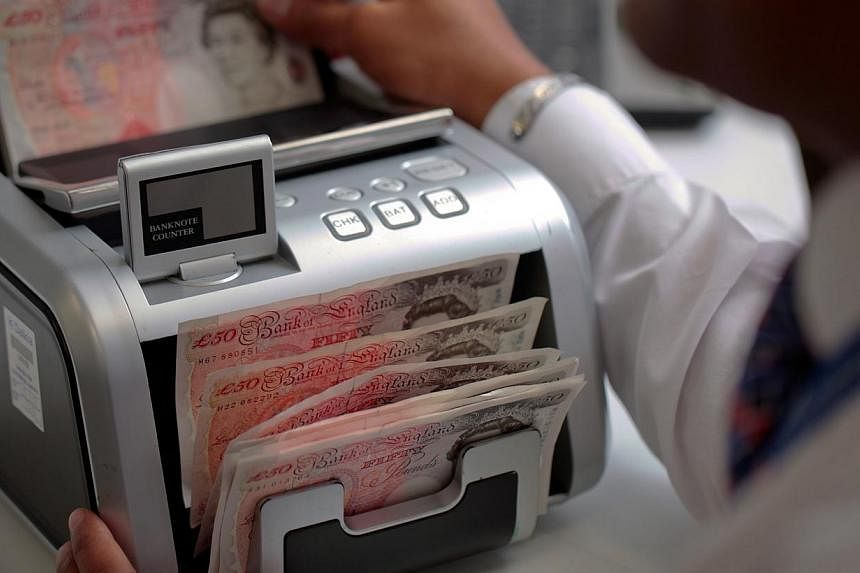The pound and the euro have been falling, and it's come as good news to Singaporean tourists and businessmen.
More people are planning holidays to the United Kingdom and the euro zone, said travel agencies, to take advantage of the dropping currencies in Europe.
Singapore businesses, meanwhile, are benefiting from cheaper exports from the region.
Market watchers expect both currencies to keep sinking until the end of this year.
The possibility of Scottish independence has recently weighed down the pound. It was worth around $2.05 yesterday, after a week of hovering around its lowest levels since November last year.
Likewise, the euro has been languishing close to its lowest point since May last year, as the European Central Bank plans a monetary stimulus in the desperate hope of kick-starting the euro zone economy. It was around $1.63 against the Singapore dollar yesterday, dropping from $1.64 on Wednesday.
The weakening of the two currencies has prompted an uptick in travel bookings for that region, according to travel agencies here.
Ms Alicia Seah, marketing director at Dynasty Travel, said the agency's bookings for trips to Europe have shot up by as much as 40 per cent this year, compared with the figure last year.
"Europe is very attractive, especially Italy, because Singaporeans' spending power is high," she said. "People go there to buy leather bags."
It has also become cheaper for companies to buy goods from that part of the world, business leaders noted.
"There is some cost saving," said Mr Lyle de Groot, who imports food from Europe for his online food store Expatfoodhall.com. "Every little bit helps."
On the flip side, consumers in that region are less able to afford goods and services from Singapore - which could affect sellers here.
Mr Victor Tay, chief operating officer of the Singapore Business Federation, said firms that export to Europe could hedge their currency risks.
"Some businesses may be less affected given their strong infrastructure investment. Others which are more trading-based and are sensitive to currency fluctuations will have to find a new competitive edge," he said.
"The Singapore Business Federation advises businesses with UK trade ties to monitor the political developments in that region and tailor their business strategies accordingly."
Mr Jonathan Phoon, executive director of wet-towel maker Freshening Industries, which exports to Europe, said that despite the weaker euro, his business is still doing well because economies there are stable.
Europe accounted for about 15.4 per cent of Singapore's imports and around 8.5 per cent of its exports last year, according to Department of Statistics data.
Currency experts said the pound and the euro may continue to soften against the Singapore dollar for the next six months at least.
"When the euro weakens, the pound needs to follow for the UK to stay competitive. Both may weaken further due to uncertainties ahead," said Phillip Futures investment analyst Howie Lee.

